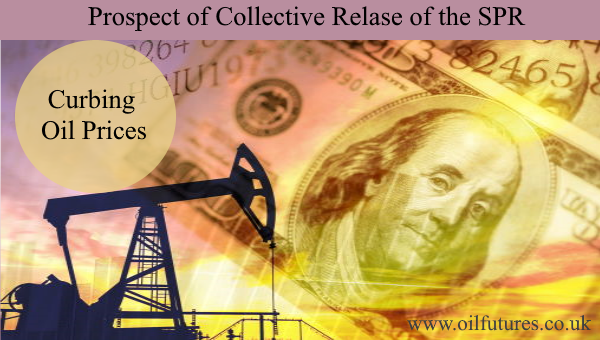The price of crude oil tumbled on Wednesday in the
aftermath of Biden-Xi talks that took place virtually on Tuesday.
Although both sides were tight-lipped about what
were under discussion during the three-and-half-hour long conversation, the
Chinese media started guessing the contents in dribs and drabs.
One of the main items that the two leaders discussed
was, among other things, according to these sources, the global energy crisis.
It goes without saying the damage inflicted on the
world’s two large economies due to the current energy crunch, despite one being
the largest crude oil producer on the planet.
China, in the absence of such nature-luck, is at the
mercy of its imports and the steep rise in gas prices created a major energy
problem in the country that led to power shortages across the vast nation.
The determination of the Chinese authorities to play
their role in cutting down on carbon emissions too had an adverse effect on the
energy crunch, as the power suppliers were forced to look for alternatives for
coal – in the absence of such one.
Finally, China managed to dealing with the crisis by
switching back to the old ways, as it did not have a choice, when factory
output fell dramatically in proportion to the power shortages.
The short-term measures, however, could not reverse
the decline in China’s growth due to high energy costs that in turn contributed
to lingering supply chain issues.
On this front, China is not the only major economy
that suffers at present. The US is in the same predicament too.
Having failed to force the OPEC+ to pump more oil,
President Biden and his team have been contemplating on the use of ‘other tools’
in order to tame the crude oil markets.
Since President Biden came to power on top of a ‘green wave’,
he cannot appear to be contradictory by encouraging the local producers to pump
more. Nor can he increase the Federal funding for expanding fossil fuel
extractions – for obvious reasons.
In short, his hands are tied by the rope of ‘green
credentials’.
Then, he turned to the OPEC+, perhaps, as the last
resort - with no success.
The only choice left for him at present is releasing
some of the US SPR, Strategic Petroleum Reserve, despite analysts questioning
about its positive impact on the price.
The potential failure to achieve the intended goal
may be the reason behind the delay in taking such a bold step, despite
political backlash at home for doing nothing in order to curb the inflation.
Having weighed the pros and cons of releasing the
SPR, the team Biden appears to be going for a collective attempt rather than
individual action, while asking the other major economies to do the same.
The move also implies President Biden’s diminishing
hope of Iran’s contribution to the global crude oil supply, when the talks on reviving
the JCPOA, 2015 Iran’s nuclear programme due to start on November, 29.
As far as releasing the SPR is concerned, it may be
easier said than done, though. Japan, for instance, has already expressed the
constitutional friction against such a move, as it has not faced a war-like
situation or national emergency.
As for China, it has been releasing its own SPR for
some time in order to bring down the cost of fossil fuels; since it SPR of any nation is not
a bottomless pit, there is a limit when it comes to tapping it.
India, the world’s third largest consumer, is in the
same position; it has used up some of its SPR too.
Despite the questionable pragmatism of such a
collective move – and its success – the crude oil markets are edgy at the
moment, clearly reflected by the sharp fall in the price of crude oil on
Wednesday.
The OPEC+ also has tools in its ‘armoury’ to hit
back, though. It can, for instance, selectively raise the price of crude oil on
individual basis; some members have reduced the price of crude oil in the past
few months and they have a right to reverse it too.
The global oil crunch, meanwhile, is slowly moving
from the realm of economics to that of politics, casting a palpable dark shadow
over both that will take many months to disappear.







